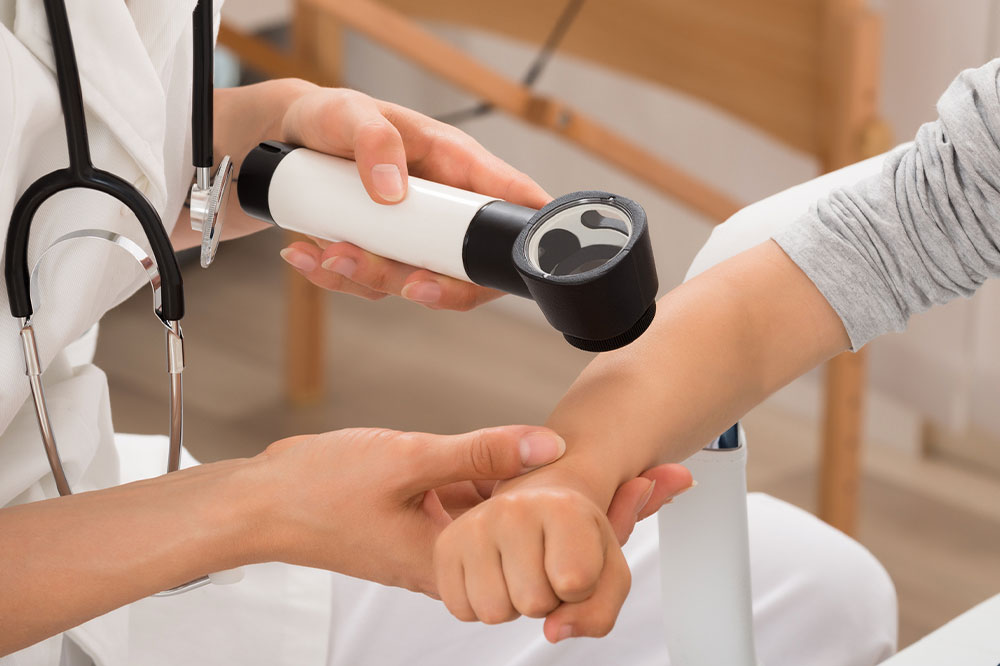10 warning signs of eczema to look out for

Eczema is a skin disorder that causes inflamed and itchy skin. The kind of rash you get and where it appears on your body can vary depending on your eczema. Generally, eczema symptoms don’t always persist. For example, your skin may be perfectly okay before suddenly becoming extremely itchy and inflamed. Read on to identify the warning signs of eczema and what to do if they stay for long, causing trouble in day-to-day activities.
What are the symptoms and warning signs of eczema?
Eczema is a skin disorder that causes dry, itchy, rough skin. Each type of eczema has its unique set of signs and causes, and here are a few common signs of eczema to look out for:
Dry skin
When you have eczema, your skin may feel tight and dry even before it itches or becomes red. However, the dryness shows that your skin barrier isn’t functioning correctly.
Red or brown patches
You can tell if you have eczema by looking at the color of your rash. Eczema is possibly to fault if the skin is cracked and red or brown.
Worsening of rashes
Another eczema warning sign is if you experience a flare-up followed by prolonged periods of remission. It is renowned for its ups and downs; various factors can set off flare-ups in different people.
Nail changes
These can appear in people with chronic dyshidrotic eczema. The nails may grow thick and discolored and form pits and ridges.
Fluid-filled tiny blisters
The little blisters appear in the palms, the sides of your fingers, or the bottoms of your feet. The skin around your blisters may be highly irritating or painful. A few individuals experience groups of blisters that expand into more prominent blisters when they merge.
Uneven and swollen skin
You’ll see swollen and discolored skin when you observe a rash. The enlarged skin often appears red in those with white skin. Darker skin tones see a subtler color change that might range from gray to violet-brown.
Scaly and thick rashes
One of the most prevalent warning signs of eczema is having extremely thick, scaly skin that frequently looks leathery.
Tearing up of your blisters
Oozing occurs when the blisters rupture, naturally or due to scratching, and fluid flows onto the skin’s surface.
You notice hives
Hives are little, raised bumps that might develop after exposure to an allergen during flare-ups, workouts, or a hot bath or shower.
Your skin is infected
The blisters are highly irritating, and scratching them might cause a skin infection. This could occur if you scratch the blisters, allowing bacteria to enter. Swelling, redness, and yellow crustiness where you have blisters are indications of a skin infection. Get medical attention if you exhibit infection-related symptoms.
Bottom line
Get on your eczema prescription (or consult a dermatologist if needed) and be vigilant about applying a non-irritating lotion that helps strengthen a weak barrier. Humectants like glycerin and fatty acids like shea butter and ceramides are beneficial. Avoid the trigger if you can. It could be impossible to prevent eczema warning signs if you’ve been exposed to a stimulus.





